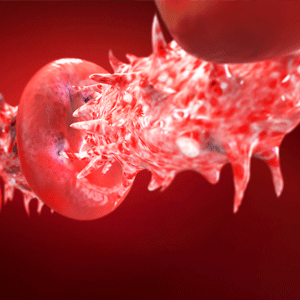
As part of her recent doctorate in Molecular Biology, Dr Carine Sao Emani of the Department of Biomedical Sciences at the FMHS, found that is possible to stop the TB bacterium from producing the vitamin ergothioneine. Her study demonstrates that the organism needs this vitamin to survive.
Humans also need ergothioneine for healthy brains, eyes and skin, and get it from eating foods like mushrooms, beans and oats.
Read: Why mushrooms are good for you
Sao Emani’s research showed that blocking the bacterium’s ability to produce this vitamin could pave the way for the development of a new drug, especially since totally drug-resistant TB is on the rise.
To determine what would happen if the bacterium could no longer produce its own ergothioneine, Sao Emani genetically manipulated it in a laboratory which had similar features to those of a human cell during active TB.
“Sure enough, when the microbes could no longer produce their own vitamin, they weakened and even died. We repeated this experiment, this time placing the modified bacteria in conditions similar to those found in human cells with latent TB,” said Sao Emani.
“We found that the microbes struggled to grow when their nutrients were depleted. In other words, if a drug were to prevent TB bacteria from making ergothioneine, it could be effective against active as well as latent TB.”
Read: Drug resistant TB remains a crisis
By identifying the exact vitamin-producing enzymes in TB bacteria and blocking their ability produce each of them, Sao Emani said they hope that this information will help drug companies to develop medication that specifically targets these vitamin-producing enzymes, thereby helping to cure active and latent TB.
“Our finding is significant, since about a third of the world’s population live with latent TB, making effective containment of TB very difficult,” said Sao Emani.
“In a country where 80% of the population has latent TB – and where HIV, diabetes, obesity, poor nutrition and alcoholism can lead to high rates of reactivation of latent TB, a treatment like this will truly be ground-breaking.”
Sao Emani says the next step will be to test the behaviour of the modified bacteria in actual human cells and animal tissue samples.
Read: New antibiotic could overcome drug resistant TB
“Once we are sure that bacteria deprived of their vitamin-producing enzymes struggle to survive in these cells, chemists may be able to develop drugs that block the specific enzymes that we identified.”
“Since we were also able to pinpoint exactly which of the enzymes were most important for producing ergothioneine, these drugs can now be tailor-made.”
The resulting drug regime will likely be effective at lower doses than existing medications and treatment periods will be shorter, resulting in fewer problems with poor compliance, said Sao Emani.
Read more:
Childhood drug-resistant TB rife in Cape Town
Research into TB and HIV unveils hope and challenges
Hope for children suffering with TB and HIV
Image:Bacteria virus from iStock




 Publications
Publications
 Partners
Partners














